Project Based Learning (PBL)
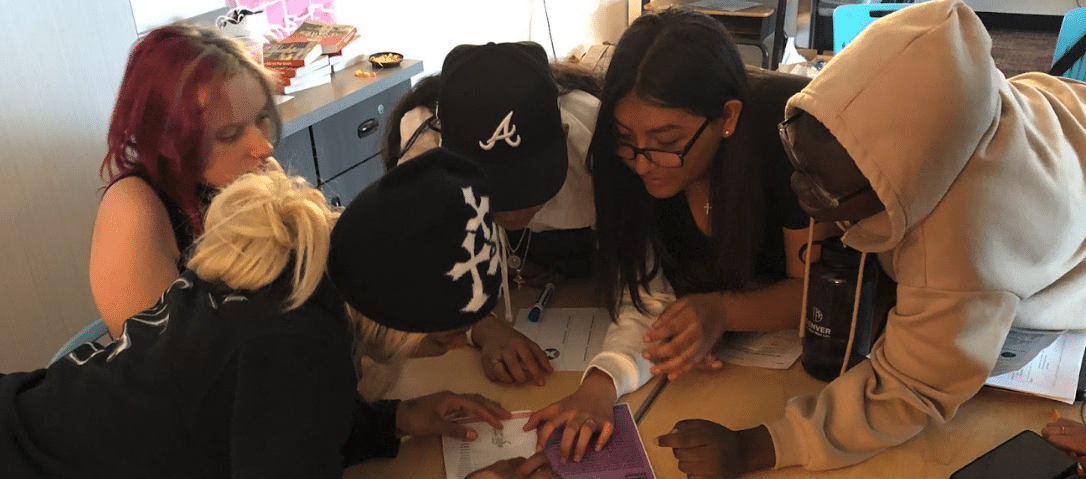
Project Based Learning Overview
During the 2023-2024 academic year, GALS engaged in a high school redesign process that resulted in the adoption of a Project Based Learning (PBL) approach to instruction because PBL leads to deeper understanding and greater retention of content knowledge.
In two gold-standard, randomized, controlled trials of thousands of students in diverse school systems across the U.S., project-based learning significantly outperformed traditional curricula, raising academic performance across grade levels, socioeconomic subgroups, and reading ability1.
In the real world, most of our time is spent working on projects, whether at work or at home. For everything from running a campaign to launching a new business to building a skyscraper - project planning and execution is required. By embedding content standards inside projects, students are better building the skills that will be required of them after high school graduation.
In addition, a pilot was conducted in which GALS high school students worked on two projects throughout the course of a one-week intensive. One group’s final product was to create a prototype for more sustainable, eco-friendly packaging, and the other group was charged with creating a policy on generative artificial intelligence for GALS to review and use.
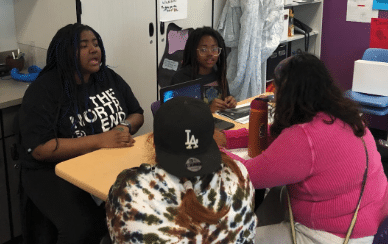
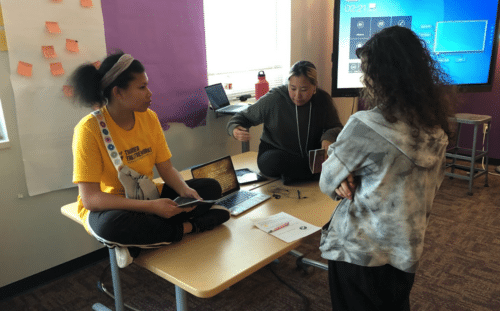
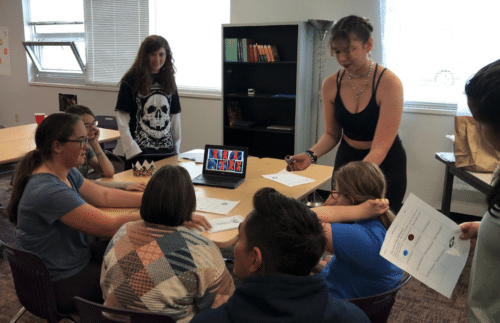
During the pilot, students reported...
"I like the creative freedom."
"This is fun."
"It's pushing me out of my comfort zone."
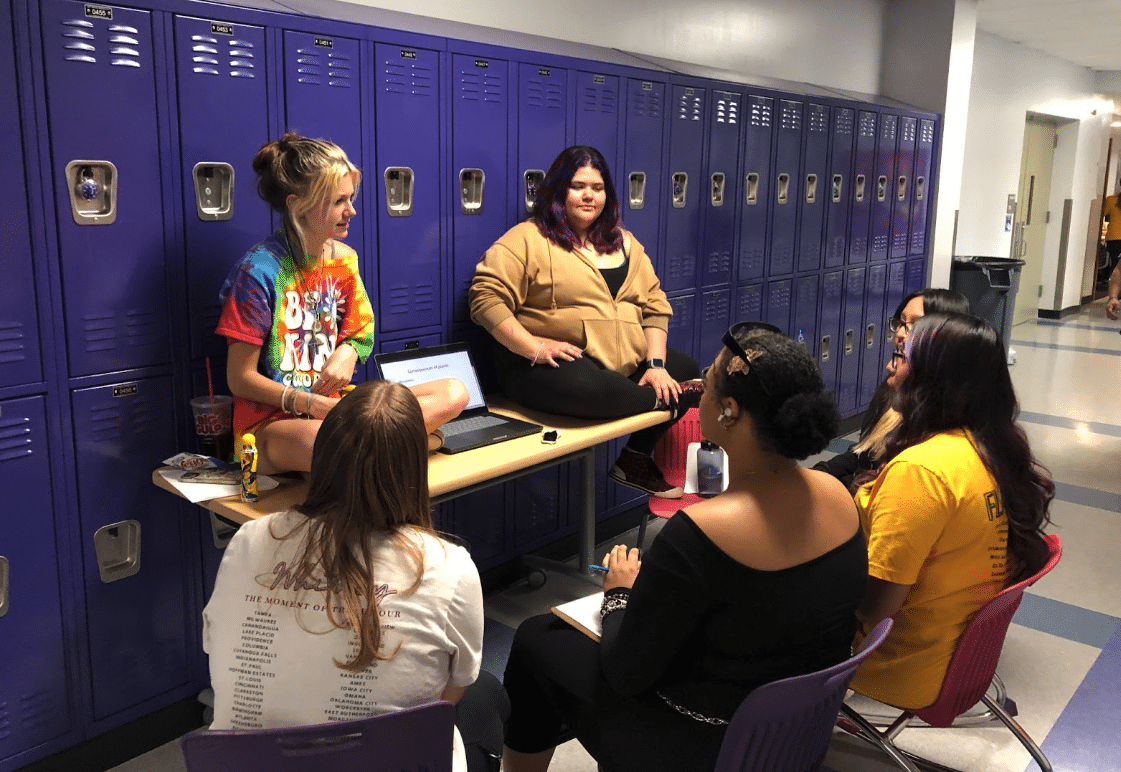
"I love how well we are working together."
"It felt like we came together as a community this week."
"This doesn’t feel like school."
"Group dynamics are improving and I made a new friend."
What is Project Based Learning?
Project Based Learning (PBL) is a teaching method in which students gain knowledge and skills by working for an extended period of time to investigate and respond to an authentic, engaging and complex question, problem, or challenge.
The Buck Institute for Education and PBL Works
GALS teachers are undergoing training through the Buck Institute for Education’s PBL Works, the creators of the Gold Standard for PBL.
- PBL Works has trained 190,000 teachers and leaders across all 50 states.
- PBL Works has supported 5800 schools and 60+ districts for system-wide instructional improvement
- PBL Works’ vision is for “all students, especially Black and Brown students, to engage in high-quality Project Based Learning to deepen their learning and achieve success in college, career, and life.”
- PBL Works focuses on four research-based “success skills” - critical thinking, collaboration, self-directed learning, and complex communication. 2
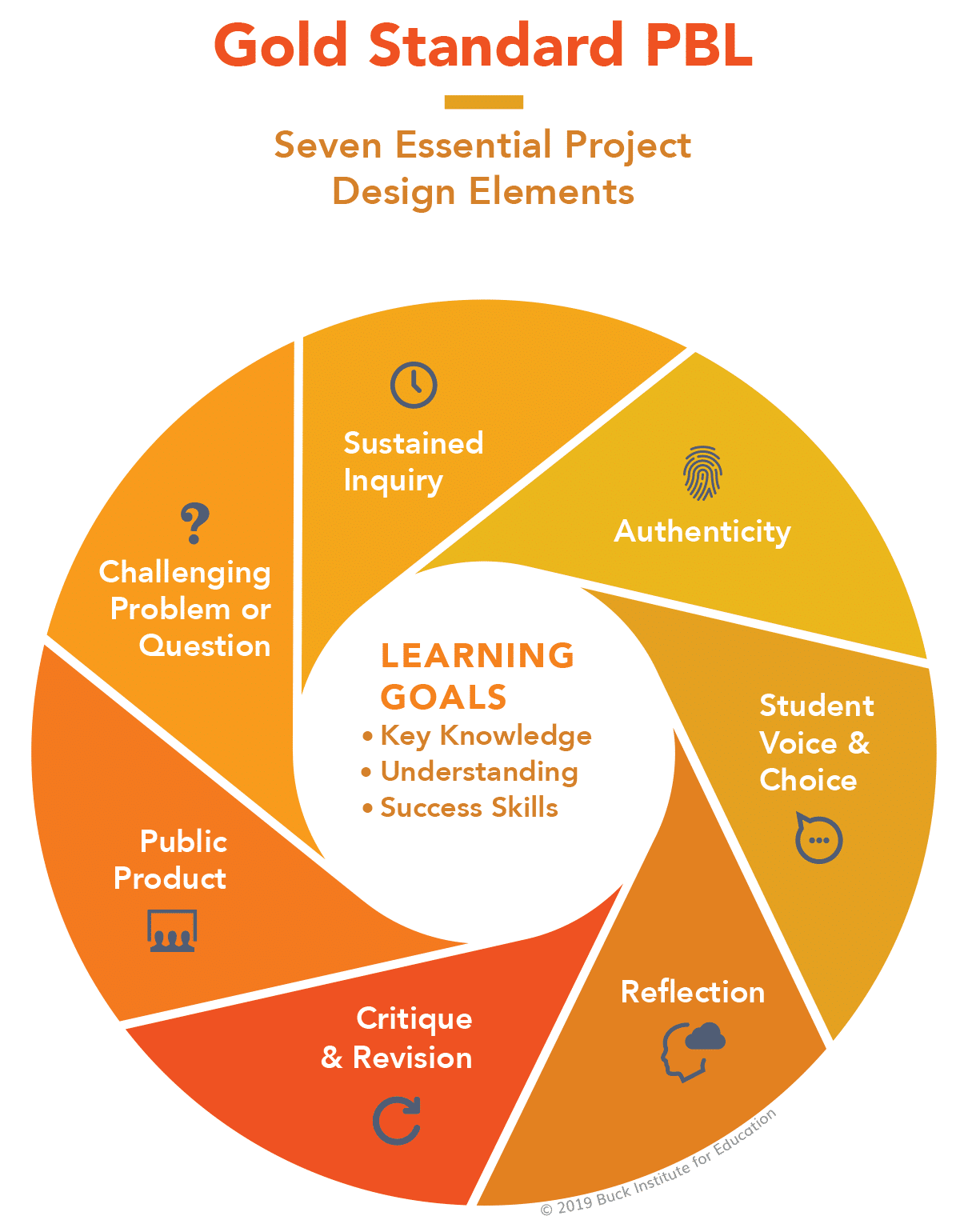
Project Based Learning (PBL) Research
High school students engaged in project based learning in Advanced Placement US Government and Politics and Environmental Science courses outperformed students in traditional classrooms on AP exams. The effect held for students from lower-income and higher-income households. Notably, a higher proportion of students in the study were from low-income households than is typical for AP test takers. 3
Students participating in a PBL middle-school science program in high-poverty, diverse schools, outperformed peers receiving traditional science instruction on science, math and English assessments. English learners in the PBL course, outperformed peers on a language proficiency test. 4
References
- https://www.edutopia.org/article/new-research-makes-powerful-case-pbl/
-
https://www.nciea.org/library/assessing-21st-century-skills/
- https://www.lucasedresearch.org/wp-content/uploads/2021/08/Equity-Research-Brief.pdf
- https://www.lucasedresearch.org/wp-content/uploads/2021/08/Equity-Research-Brief.pdf
Additional research that informed GALS decision includes: